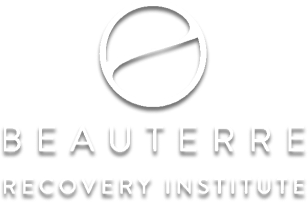*Melanie has struggled with her weight all of her life.
She was teased as a teenager for being chubby and she tried Weight Watchers many times in college. Her weight a roller coaster of numbers.
Until her twenties when she tried methamphetamine one night at a concert with friends. The high was beyond anything she ever experienced, but that is not what hooked her, what hooked her was when she noticed a lack of hunger. The more she used methamphetamine, the less she ate, and the weight began to fall off.
She was thin and high. What she didn’t realize in her quest for thinness, was the extreme danger she was in not only from using methamphetamine, but in the rapid decline of her body’s set point. She began to develop a life-threatening eating disorder. And Melanie’s story is not unique.
Research suggests that nearly 50% of individuals with an eating disorder (ED) are also abusing drugs and/or alcohol, a rate 5 times greater than what is seen in the general population. The co-occurrence of these disorders affects both men and women with up to 57% of males with BED (Binge Eating Disorder) experiencing lifelong substance abuse problems. Eating disorders and substance abuse are independently correlated with higher than expected rates of death both from medical complications as well as suicide.” – NEDA
The eating disorder and substance use were no longer two separate things, they were now feeding each other, making recovery even harder to grasp.
When the two conditions are left in place, they can strengthen one another and increase the misery quotient to an untold degree. People with anorexia, for example, may walk closer and closer to the overdose line as their body weights drop and they continue to take higher levels of drugs.” – NEDA
Yet many treatment centers still focus on treating one at a time.
Like a Whack-A-Mole game, one goes down and the other pops up.

Patients will recover from substance abuse all while engaging in eating disorder symptoms. Or they will recovery from using eating disorder symptoms and return the substances to numb out.
Back and forth, back and forth they go swinging from one to the other and never fully getting well.
Melanie found herself in this cycle for years, leaving her with great shame as she wondered why she could never get well and as treatment professionals only focused on one issue at a time.
Did you know…this is much more common than many realize.
In recent years, a strong link between substance abuse and eating disorders in women has become apparent. Studies reveal that up to one half of individuals with eating disorders abuse alcohol or illicit drugs compared with 9% of the general population. Approximately 35% of alcohol or illicit drug users have eating disorder compared with 3% of the general population. Both groups share risk factors and personality characteristics.” – Social Work Today
And many begin to ask, “Why? Why is there a rise of eating disorders in halfway houses, substance abuse treatment centers, and day treatment centers?”
They are attempting to distract or protect themselves from underlying problems by means of excessive drinking, drug use, eating, or dieting. While these behaviors are self-protective by intent, they become self-destructive by consequence. Symptoms become functionally autonomous; the drive to drink, use, eat, or starve loses its connection with the underlying problems and takes a life of its own, often becoming self-reinforcing and self-perpetuating. Recovery is complicated because it must address both the underlying original problem as well as the now-embedded cycle of self-destructive behaviors.” – The Connection Between ED and SA
Instead of asking “why?” we need to understand, be aware and not be afraid to address it with patients like Melanie. We need to help stop the cycle.
It doesn’t have to be this way.
At Beauterre, we believe in treating the WHOLE person.
This means treating all co-occurring issues simultaneously.
We create comprehensive personalized treatment plans that address all issues with the patient so they can leave treatment with hope and recovery for their future.
Melanie found hope at Beauterre, where she could address both issues at the same time. Where she wasn’t discharged because of her eating disorder but learned to lean on staff for help when she was struggling with urges to binge or starve. The shame and stigma was removed and she was able to focus on why she was using food or the lack of food to numb out. Just like she was with her drugs.
Melanie was finally able to talk about it, to be able to work through it in group therapy, individual therapy, and equine assisted psychotherapy. All of this helped untangle the knots of her co-occurring disorder.
She no longer is at war with her own body through food or substances. And she starting to rebuild her life that was stolen away by addiction.
There is HOPE. We understand and want to help treat all issues at once.
And if see a bit of Melanie in your own story, we recommend this short tool, The SCOFF Tool, to help you identify if food is an issue for you too.
Interested in learning more? Call us at: 1-855-211-5869 or fill out this form for more information.

*Name has been changed
Photos from Google Images and Unsplash
 Beauterre Recovery Institute
Beauterre Recovery Institute
